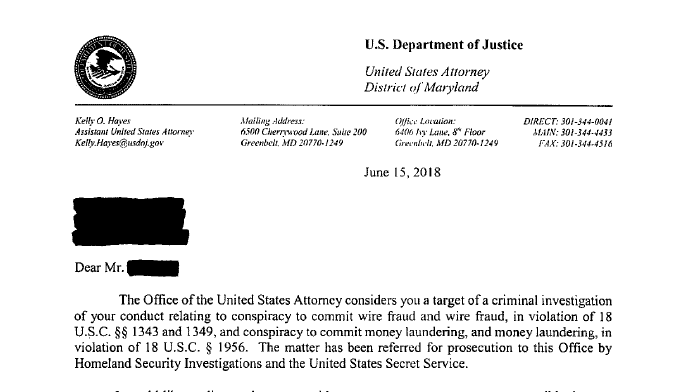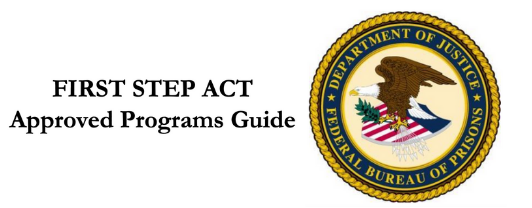You’re the FBI Target
5 Areas You Must Advocate For Yourself
PREPARATION = SURVIVAL
If You Suspect You’re The Target of a Federal Investigation | Before The Presentence Interview (PSI) | After The PSI – But Before The Sentencing Hearing | After Sentencing or You’re Already Incarcerated | There Are Still Things We Can Do
For a No Obligation Free Consult, Call: 240.888.7778 or by email. I answer and personally return all of his calls.
1st, Start interviewing Attorneys
- Ask for References
- I am sure you have several “happy” clients willing to speak with you. Don’t be shy; before I had a hip replacement, I, too, interviewed many orthopedic surgeons asking similar questions.
- Ask to see “several Sentencing Memorandums,”
- If they ask Why, or that is Confidential, politely respond by agreeing, but PDF Adobe documents can be redacted, ‘blacking out’ all personal identification.
- Here, we want to see if they take the time to write each separately, or are they Boilerplate?
2nd, You and your attorney,
- YOU HAVE TO BE HONEST WITH THEM ABOUT EVERYTHING (again, here, too, I was not; Another Lesson Learned)
- NEXT: as the DOJ has a 98% conviction rate, do you want to go to Trial or Plea?
3rd, If you win at Trial: CONGRATS!!
4th. If you lose at Trial or Plea, at best, you now only have 90 days to prepare for your Presentence Interview
YOU
- Collecting copies of your medical records – Everything
- Hospital, laboratory, radiology, physician, surgical, prescription, and medical devices
Other: copies
- You get the picture: educational, military, character, community service, work references, original birth certificates, social security cards, licenses, etc.
Your Attorney: Preparing their strategy for The Presentence Interview, then
ASAP, they will contact The Probation Officer to learn when their Final Dictation Date Is for Your PRESENTENCE REPORT
- Why: because they want to get a feel for what the Officer knows while getting their “message on the record, “… AKA Bonding
- To Set Up YOUR INTERVIEW
BE PREPARED because the P.O. will write your PRESENTENCE REPORT based on your INTERVIEW.
- YOU NEED TO KNOW – YOUR NARRATIVE COLD
Your PRESENTENCE REPORT IMPACTS
- Release Date
- Security Level Requirements
- Medical and Mental Healthcare Needs
- Psychology Programs – Limited Availability
- FSA Programming, and Criminogenic Needs, Risk Assessment ⇒ ETC towards early release
5th. YOUR PERSONAL NARRATIVE
MEANWHILE, for the last 3 months, you have been writing and rewriting your story – YOUR PERSONAL NARRATIVE that challenges the DOJ Narrative of you – Your INDICTMENT.
Well written, this is your chance to speak directly to the Judge – and where he gets to know who you are, humanizing yourself to the court. Judges understand that crimes do not happen in a vacuum and want to know why you committed your crime. You now have the opportunity to accept responsibility and have remorse for the pain you have inflicted on your victims.
Done right, it could lower your sentence, but no guarantees –
Still not convinced – Listen to what these five Judges Say:
A Federal Judge’s Musings on Defendants’ Right and Rite of Allocution,
NACDL, The Champion, March 2011
Judge Mark Bennett, My basic principles of allocution include:
(1) be sincere.
(2) discuss what “taking full responsibility” means;
(3) acknowledge that there are victims (e.g., even when the PSR indicates “no identifiable victim,” as it does in most drug cases);
(4) an understanding of how the crime affected the victims;
(5) express genuine remorse;
(6) a plan to use prison or probation time in a productive manner;
(7) a discussion of why the defendant wants to change his or her criminal behavior; and, perhaps most importantly,
- a true desire to learn a specific trade and a request to go to a specific Bureau of Prisons institution that offers that trade can sometimes be beneficial.
(8) information that helps humanize the defendant and the defendant’s role in the crime.
THE FEDERAL LAWYER • September/October 2019
VIEWS FROM THE BENCH, Own the Mistake – Demonstrate Sincere Remorse
Judge Richard G. Kopf of the District of Nebraska,
One of the best allocutions I have ever heard was:
“Judge, I want to atone for what I did to the victims and my family. I deserve some prison time. I hurt the victims, I hurt my family, and I’ve hurt myself. When I get out, I am ready to take the following steps.”
Judge Jon D. Levy of the District of Maine in Portland, “Allocution matters,”
“I will never hold poor communication skills against a defendant. What’s important is whether I am persuaded that the defendant is sincere and demonstrates insight about the crime…”
Judge Cynthia A. Bashant of the Southern District of California
“I want him to apologize to the victim and his or her family, particularly if they are in the courtroom. Just like a parent with a child who has done wrong, I am looking for ‘insight’ from the defendant,”
Judge Marcia S. Krieger of the District of Colorado in Denver has “seen allocutions where a defendant has shown that he is sincere and thoughtful about what he is saying.”
It is very important for the lawyer to prepare his client for allocution if allocution is to be made.
It is essential for Judge Krieger that a defendant “publicly admit his shame,” which shows her that he has internalized his crime.
If You Suspect You’re The Target of a Federal Investigation | Before The Presentence Interview (PSI) | After The PSI – But Before The Sentencing Hearing | After Sentencing or You’re Already Incarcerated | There Are Still Things We Can Do
For a No Obligation Free Consult Call: 240.888.7778 or by email. I answer and personally return all of my calls.


